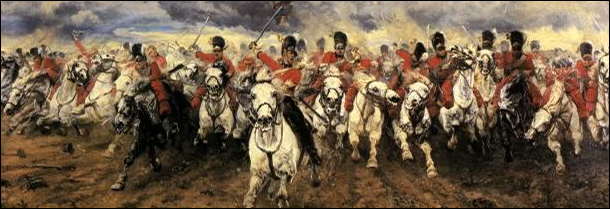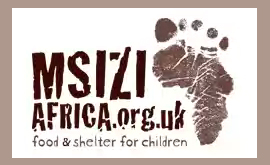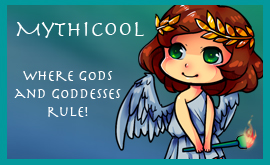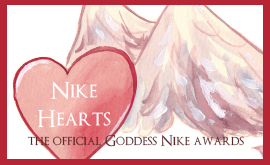

"Apropos as psycho,
Ares is a fair foe -
For as he wreaks gory woe,
he ploughs fields where poppies grow"
- The Oracle of Nike -
Victory is so closely associated with War that ancient writers, such as that of the Homeric hymn to Ares (War), often stated that Ares fathered 'warlike Nike'. This suggested parentage is chronologically incorrect since Nike was born prior to Ares, who is the son of Zeus and Hera. In this section, we begin with an understanding of War and then we examine its relationship with Victory.
Ares has two blood sisters, Hebe (Youthfulness) and Eileithyia (Childbirth). These three siblings together represent the circular process of human progress: creation <-> elation <-> destruction. Each of the siblings possesses a mixture of creation, elation and destruction and they are mutually supportive.
Ares was born in the aftermath of the Titanomachy and the Golden Age of non-violent and long-living mortals. The subsequent Silver Age of mortals, according to Hesiod's Works and Days, "...lived [their adulthood] in sorrow because of their foolishness... [and it was a short adulthood] for they could not keep from sinning and from wronging one another".
Thus, War, as a social institution or a biological determinant, did not clearly manifest itself until the second phase of human development in the early Upper Paleolithic period, around 40,000 BCE. This second phase witnessed the advent of 'behavioural modernity' and a period of rapid development in human consciousness. Humans, now homo sapiens sapien, began to contemplate the value of life, living and death and came to the conclusion that Youthfulness, Childbirth and War were the three most important human experiences. This War was a primitive form of tribal War usually fought over women and it included mass fighting, raids and ambushes conducted under the 'calculus of social substitutability'.
By the late Upper Paleolithic period, around 15,000 BCE to 12,000 BCE, advancements were made in tool technology and social planning and organisation: blades and spears were joined by the invention of the bow and arrow; with rising population density more communities came into contact with one another and sought to establish their territories; and these different communities developed their own social dynamics and this led to cultural diversity between groups. These factors paved the way for modern War.
Ares, now a virile man, fathered two boys Deimos (Fear) and Phobos (Panic), a genial girl Harmonia (Harmony) and Little Eros (Erotic love), with his mistress Aphrodite (Potent / Insatiable Desire). It is frequently observed that War participants can enjoy bloodlust and this is chemically and psychologically similar to sexual pleasure, which in turn may account for the prevalence of bloody War. We also see that War's lustings for an Insatiable Desire, whatsoever the outcome may be, brought with it a combination that included Fear and Panic and Peace and Pleasure.
Ares' sons, as young brothers often do, fight with each other causing Ares' blood pressure to rise. Thus, War not only caused Fear and Panic, sometimes Fear and Panic caused War. Faced with acute environmental challenges or scarce resources, panicking groups of humans often came into conflict with other groups of humans who were fearful of being displaced or having their identity destroyed. After War or in the absence of War, Peace and Pleasure promoted cultural development, such as in art and religion; a rise in population and an increase in resource requirements; and social organisation and planning, such as in operational functions like command and control and logistical support. These further entrenched a community's identity and made War with other communities with different identities or on different trajectories, more likely if not inevitable. In short, Fear / Panic <-> War <-> Peace / Pleasure.
Ares, like his father Zeus, wanted to possess Nike (Victory) as a consort because she, alone, could make any God invincible. However, like father like son, Nike relentlessly refused Ares' lustful advances and she always brought his evil enterprises to an end.
"Peace descends when she does,
For she spreads victory and releases doves,
And ends the wicked work of War,
Hail to thee, Wingéd Saviour"
- The Oracle of Nike -
War concludes when Victory confers itself to one of the warring parties and, by doing so, defeat to the other. Victory is not only decisive in terms of conflict resolution but Victory, as an event in time, represents an intense node of historical change. The Victorious and the defeated parties are never as they were prior to the War. To exemplify, after overcoming great odds in many now-famous battles and being granted Victory in the Greco-Persian War of the 5th Century BCE, the Hellenic people charged their way into the Classical era of great civic, cultural and creative innovation. The Classical era was inconceivable prior to the War and Victory gave the Hellenic people, particularly the Athenians, the confidence to explore the depths of knowledge and human consciousness. If the Hellenic people were defeated in the War then the Classical era, which profoundly shaped the modern world we live in today, would not have occurred as it did.
Victory is the aspiration of all human endeavour and Victory in Childbirth, in Youth and in War are the most valuable and tangible forms in the human experience. Thus, War is necessary for living and it will endure.
Ares War Fear and Panic Peace and Pleasure












































Quote of the day